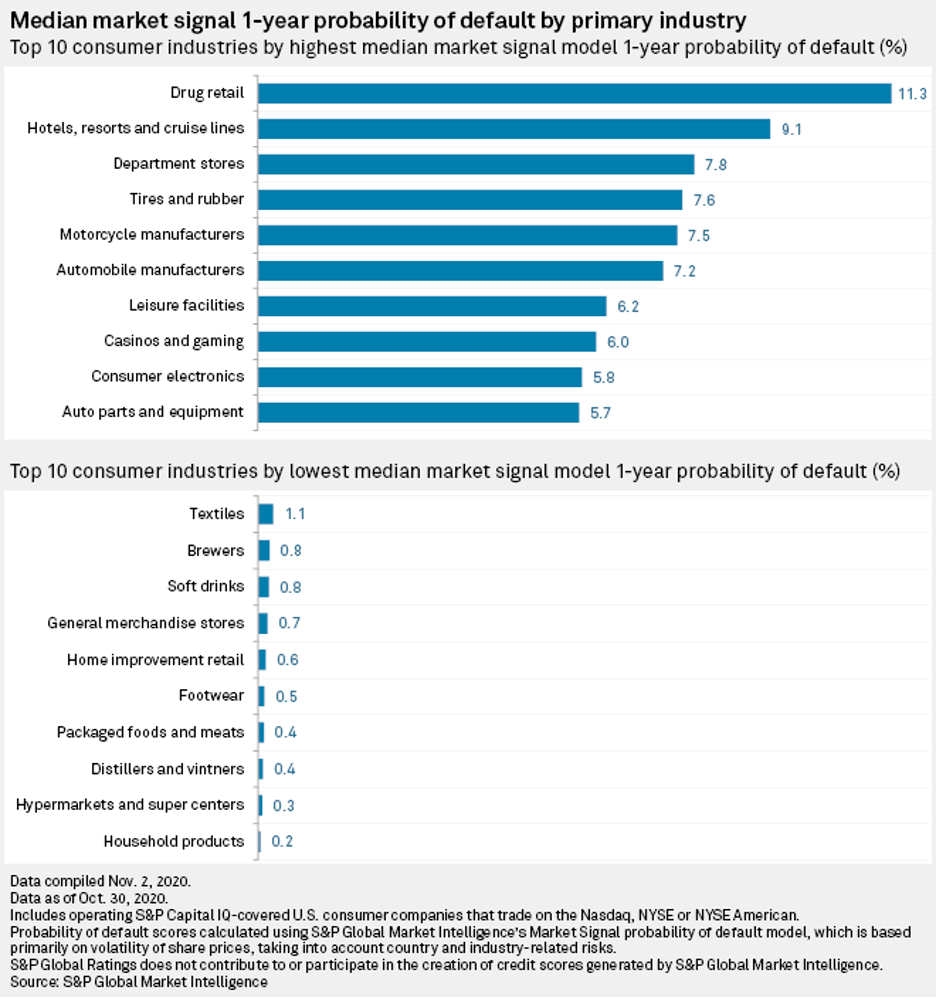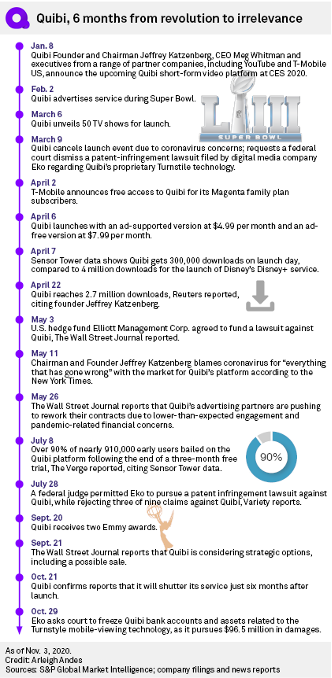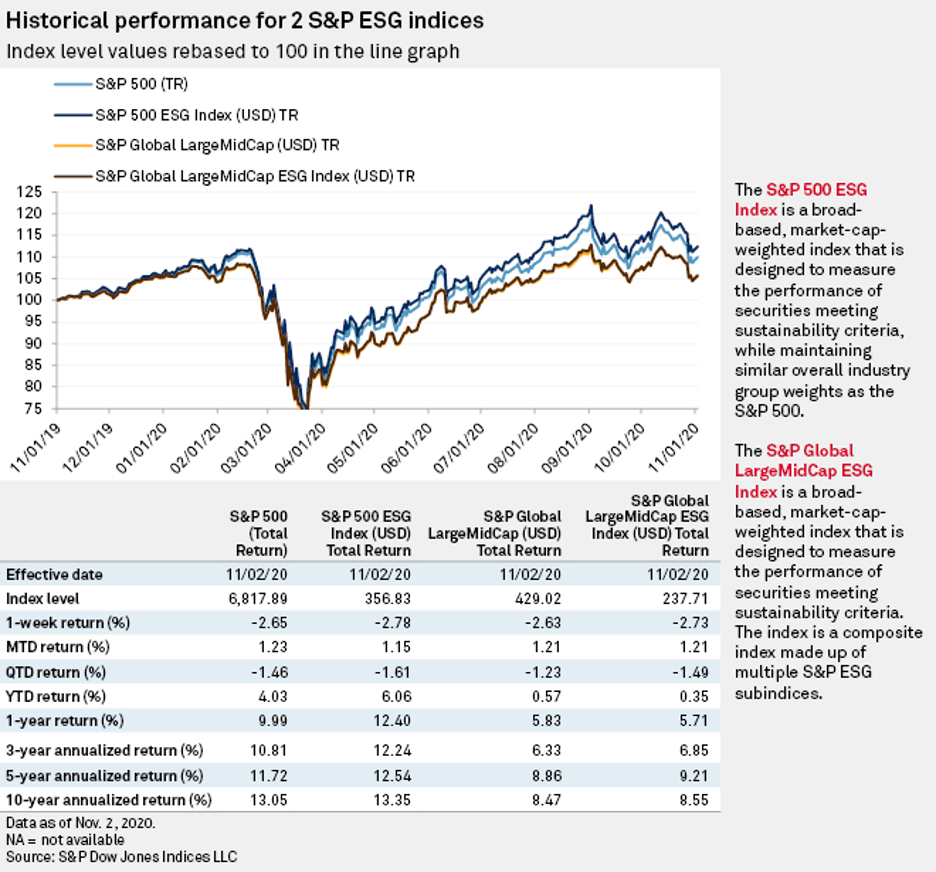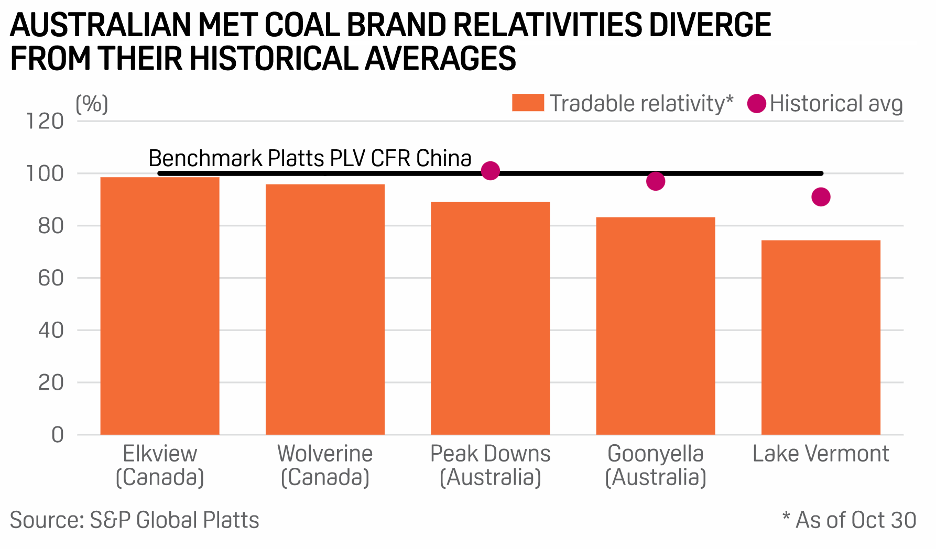Featured Topics
Featured Products
Events
S&P Global Offerings
Featured Topics
Featured Products
Events
S&P Global Offerings
Featured Topics
Featured Products
Events
S&P Global Offerings
Featured Topics
Featured Products
Events
Language
Featured Products
Ratings & Benchmarks
By Topic
Market Insights
About S&P Global
Corporate Responsibility
Culture & Engagement
Featured Products
Ratings & Benchmarks
By Topic
Market Insights
About S&P Global
Corporate Responsibility
Culture & Engagement
S&P Global — 5 Nov, 2020
By S&P Global
Subscribe on LinkedIn to be notified of each new Daily Update—a curated selection of essential intelligence on financial markets and the global economy from S&P Global.
One day after the U.S. election, President Donald Trump’s directive for the U.S. to withdraw from the Paris Agreement on climate change—under which nearly 200 nations joined together to limit global warming to no greater than 2 degrees Celsius by 2100—officially went into effect.
President Trump became outspoken against the accord in 2017 and announced he would pull the U.S. out of the deal one year ago. In the past three and a half years, the Trump Administration has rolled back a number of environmental regulations impleted during the Obama Administration. Such actions are projected to add roughly 1.8 billion tons of emissions to the atmosphere by 2035, according to S&P Global Market Intelligence.
Mr. Trump’s being elected for another term would likely keep the U.S. removed from international efforts to combat climate change as Europe, Japan, and China increase their actions. Without the U.S. involved, "it would mean other countries would have to redouble their efforts" in order to lower global warming to 1.5 degrees Celcius below pre-industrial levels, according to Carlos Fuller, the lead climate change negotiator for the Alliance of Small Island States.
"There is no greater responsibility than protecting our planet and people from the threat of climate change. The science is clear that we must urgently scale up action and work together to reduce the impacts of global warming for us all. The Paris Agreement provides the right framework to achieve this," the U.N. Framework Convention on Climate Change said in a joint statement on Nov. 4 with the U.K., Chile, France, and Italy, the governments of which will be hosting the U.N.’s annual climate conference. "We note with regret that the U.S. withdrawal from the Paris Agreement has formally come into effect today … We remain committed to working with all U.S. stakeholders and partners around the world to accelerate climate action, and with all signatories to ensure the full implementation of the Paris Agreement.”
If Democratic nominee Joe Biden wins the election, an executive order could allow the U.S. to rejoin the Paris Agreement. But it could take years for the country to take control of its emissions following the regulatory rollbacks implemented by the Trump Administration, and without designating its emissions-reduction targets the U.S. could face an uphill battle to re-enter the agreement.
A Congressional body gridlocked with differing political opinions on climate policy could also pose challenges for a Biden presidency.
"Historically, the U.S. Senate has been the key obstacle for comprehensive climate legislation, and the results from [the Nov. 3] elections suggest that this dynamic may not change," according to Jeff Berman, S&P Global Platts Analytics' director of emissions and clean energy analytics. "At the same time, Platts Analytics expects that a potential Biden Administration would use existing executive and regulatory authority to implement more ambitious climate policies than what we've seen under the Trump Administration."
Today is Thursday, November 5, 2020, and here is today’s essential intelligence.
Healthcare Industry Seeks Direction on Pandemic, Pricing From U.S. Elections

A pandemic. Drug pricing legislation. Megadeal scrutiny. These key issues will continue to affect the pharmaceutical industry and wider healthcare sector beyond the 2020 U.S. election, experts say.
—Read the full article from S&P Global Market Intelligence
COVID-19 Boosts Interest in Startups Enabling Remote-Healthcare Tech
Growing demand for remote patient care and monitoring amid the pandemic is increasing the push toward digitalization in the healthcare industry, said Paul Grand, CEO of startup accelerator MedTech Innovator.
—Read the full article from S&P Global Market Intelligence
T Cell Responses Key to Understanding COVID-19 Immunity – Adaptive President
A U.K.-based study has found that a small sample of healthcare workers who tested positive for SARS-CoV-2, the virus that causes COVID-19, were still showing signs of immunity six months after infection.
—Read the full article from S&P Global Market Intelligence
Default Odds for Consumer Industries Ease but Remain Elevated

The risk-of-default ratios for consumer industries have decreased from higher peaks earlier this year, but they are still trending above the levels they enjoyed before the coronavirus pandemic.
—Read the full article from S&P Global Market Intelligence
Estimating Credit Losses Under COVID-19 and the Post-Crisis Recovery
The Current Expected Credit Losses FASB accounting standard update requires institutions to estimate future expected credit losses when calculating provisions for investment portfolios. This policy was a widely debated topic even before the COVID-19 crisis. After facing significant challenges in terms of data availability, modeling, and reporting, many public entities began to apply this standard as of January 1, 2020. However, new challenges and questions are arising as we face uncertainty resulting from economic disruptions caused by the pandemic.
—Read the full article from S&P Global Market Intelligence
What Went Wrong at Quibi

Short-form video platform Quibi Holdings LLC started 2020 aiming to shatter the traditional constraints around mobile streaming. But it will end the year shuttered.
—Read the full article from S&P Global Market Intelligence
Ant Group’s Dramatic Listing Halt May Chill Other Fintech IPO Hopefuls
The unexpected halt of Ant Group Co. Ltd.'s dual listing in Shanghai and Hong Kong two days ahead of its scheduled debut highlights the fast-changing nature of China's regulatory environment for the financial technology sector and may lead some other fintech companies to rethink, or even pause, their IPO plans, experts say.
—Read the full article from S&P Global Market Intelligence
Potential Douyin IPO Excites and Confuses as Parent Bytedance Juggles Priorities
Chinese internet company Beijing Byte Dance Telecommunications Co. Ltd.'s plan to list its domestic version of TikTok Inc., Douyin, could be a hit with investors but negatively impact the parent's other apps, experts told S&P Global Market Intelligence.
—Read the full article from S&P Global Market Intelligence
How Does AT&T Solve A Problem Like DIRECTV?
For the second time in as many months, speculation is swirling that AT&T Inc. is looking to unload at least a portion of its DIRECTV pay-TV business.
—Read the full article from S&P Global Market Intelligence
Sustainable investment groups weigh next steps on Labor Department's ESG rule

A controversial rule recently adopted by the U.S. Department of Labor has incited a wave of backlash from the sustainable investing community.
—Read the full article from S&P Global Market Intelligence
QNB Green Bond A Sign of What's to Come as Gulf Embraces ESG
Qatar National Bank’s $600 million green bond issuance is a sign of growing investor demand for these instruments and could presage further activity in the Gulf Cooperation Council, with growing interest and awareness within corporate boardrooms.
—Read the full article from S&P Global Market Intelligence
Evolve or Die: U.S. Refiners Grasp Renewables Lifeline to Stay Viable
Once the scourge of the U.S. refining industry, some refiners are now looking to renewable fuels to help their bottom lines and keep their facilities operational.
—Read the full article from S&P Global Platts
China's New Energy Vehicle Market Drives Into A New Era
S&P Global Ratings today said that China's new energy vehicle (NEV) industry is set for more dynamic development in the next decade.
—Read the full article from S&P Global Platts
Analysis: Australian Met Coal Values Collapse Amid Chinese Import Halt

China's halt on Australian metallurgical coal imports has resulted in higher prices for non-Australian met coals and shifted the traditional price differential relationships between coals of different origins.
—Read the full article from S&P Global Platts
The ”U” Factor: Ukraine’s Growing Role in Europe’s Natural Gas Market
Russia's 2014 annexation of Crimea caused the Ukrainian government to take a historic decision: It would no longer buy gas from Russia and would instead try to import what it needed from its western neighbors.
—Read the full article from S&P Global Platts
U.S. ELECTIONS: Potential Split U.S. Government Puts Energy Policy in Agencies' Court
With major national election outcomes still in flux Wednesday morning, energy lobbyists and policy analysts were parsing the potential for divided government to dampen energy policy shifts, even if Democratic presidential contender Joe Biden ultimately prevailed.
—Read the full article from S&P Global Platts
U.S. ELECTIONS: GOP Appears to Keep Texas House Control, Beating Back a Push For a Greener Energy Agenda
Preliminary results suggest Texas Democrats' ambitious campaign to take control of the state House of Representatives fell flat, with Republicans holding their ground in the lower chamber and dimming prospects that a greener energy agenda could make inroads in 2021.
—Read the full article from S&P Global Platts
Written and compiled by Molly Mintz.
Content Type
Theme
Location
Language